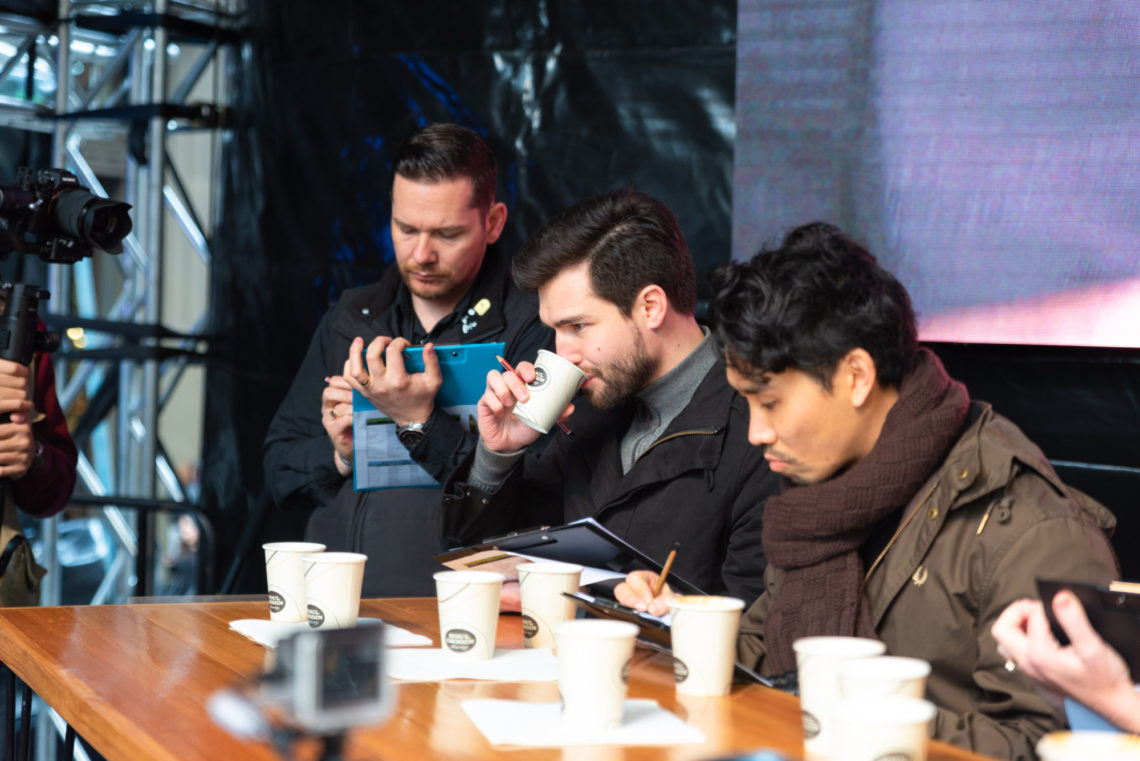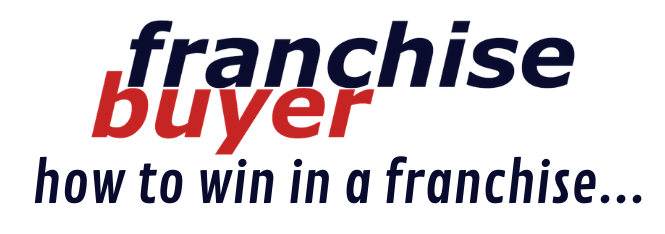August 27, 2019
The 'MasterChef' effect hits coffee.
The Soul Origin National Barista Championship is a showcase for the popular franchise brand’s service and specialty coffee — and Sam Taylor leads the team that makes it happen.

Fresh and fast food chain Soul Origin, with more than 110 sites across the country — has a reputation for nutritious healthy food, but it’s also the specialty coffee that keeps customers coming back for more. A major component of that reliable daily coffee fix is the calibre of Soul Origin’s baristas, on display for all to see at the Soul Origin National Barista and Latte Art Championship. The company’s National Coffee Coach, Sam Taylor, says the competition is an up-skilling exercise and a way of rewarding the quality of baristas in the business as well as unlocking further potential.
Taking over Martin Place, Sydney CBD
The national final, held in Sydney’s Martin Place on July 26, saw Parramatta franchise owner Sherwin Djamil take out the title for the second year in a row. Soul Origin began its national competition in 2016 and it’s run along the same lines as the Australian National Barista Championship, using the same scoring systems, with modified rules to suit the franchise environment.
The judges are selected for their independent experience in the national competitions as judges or competitors. Sam, who has competed at a national level, says the Soul Origin event, while still in its infancy, attracts enthusiastic participation within the franchise network.
“This year, we had 125 people sign up to participate in the barista discipline, from 108 stores. We also had 57 people sign up to do latte art. We’ve had some real success stories this year, people for whom it was their fourth time and they’d finally done really well.”
The competition involves regional finals with the regional champions earning finalist spots in the national championship. Each competitor has 15 minutes and the presumption is that it’s a customer service exercise and the judging panel knows nothing about the coffee you’re going to use.

“The barista’s responsibility is to execute well and give an explanation around the coffee they’re using, their reason for using it and the taste,” Sam says. “Each competitor needs to make four espressos, four milk-based beverages without any additives — lattes or cappuccinos, — and four signature beverages. That’s their opportunity to showcase something about that coffee they think is special, like a bartender making cocktails.”
There is also a “performance” aspect, where the barista describes the tasting experience before the judge samples the coffee and is marked on how well the description tallies with the tasting experience.
Soul Origin does it a little different
In regular barista competitions the barista is permitted to source whatever coffee they want, from whatever roaster. Soul Origin does it a little differently. “Within the scope of our competition there’s a limitation on how many coffees they’re allowed to use,” Sam says. “It has to be coffees from within Soul Origin. In the past, we’ve given them three or four options and a guideline on how to use the coffees. One of the things we did this year to make it more difficult was to give them coffees completely blind. They knew what country the coffee was from, but very little else. Between our regional rounds and the final, they had a five-week to practise — then we changed the coffee they could use.”
Sam says coffees are judged similarly to wine. “There is a world-acknowledged system of coffee evaluation based on such things as balance, tactility and aroma. Any coffee a roaster produces has what’s called a ‘cupping’ score and the term ‘specialty coffee’ refers to anything over 84 points out of 100. All the coffee we use sits in that parameter.”
Within this scoring system, the judges are looking for a certain set of criteria. “Just like a cleanskin wine might taste OK up front, but be really sharp, like balsamic vinegar in the mouth afterwards,” he says. “You might say the mouthfeel is initially pleasant, but the lingering taste acrid, and therefore not that good. In the same way, the judges are assessing how well balanced the execution of the coffee is. The barista might say it’s smooth, creamy and tastes like honey on the tongue, but if that doesn’t marry up with how the coffee actually tastes, then the barista hasn’t executed well enough.”

There's a lot at stake
Enthusiasm for the competition among Soul Origin baristas is fairly widespread, possibly because of some pretty amazing prizes. This year the winner receives a trip to Italy for two, to visit the La Marzocco factory in Florence, where Soul Origin’s espresso machines are manufactured. The previous two years, winners have received a week in New York to attend the New York Coffee Festival.
“Second and third don’t go home empty handed, either,” Sam says. “Second gets a trip up near the Queensland-NSW border on a coffee farm tour, while third receives a tailored masterclass courtesy of our coffee roasters, and a tour around a few coffee haunts in Melbourne. We fly them there if they’re from out of state.”
Sam says the competition is also a way of celebrating the quality within the brand — the quality of both baristas and coffee. “If we didn’t believe in the quality of the product we serve every day, we wouldn’t do it,” he says. “It’s an opportunity for people to engage with our brand for the first time — or re-engage. We want people to acknowledge and understand that coffee and food go hand-in-hand.”

Executing great coffee
As National Coffee Coach for the brand, Sam’s approach to educating a novice barista is understandably focused. “Obviously, we have certain guidelines as to how we’re wanting to execute and get the best out of our product,” he says. “But there’s no absolute best formula on how you should create espresso — different machinery, different environmental situations, different coffees all require a different application.
What we aim to do is take the existing skills and build in that person a skillset that means they can execute in the best way possible while they’re in a Soul Origin store. A key component to all of that is attitude. It’s the easiest thing in the world to teach people how to push buttons on a coffee machine, but without the attitude of wanting to make every cup of coffee better than the one before, it doesn’t work.”

Coffee in Australia
The Australian espresso café culture can trace its origins to the influx of Greek and Italian migrants in the 1950s and ’60s, who transformed the country from a tea-drinking nation. The result is that Australia is now considered an international market leader in terms of coffee. All of Soul Origin’s coffee is classified in the “specialty” category and purchased via direct relationships with buyers in countries of origin.
“When you buy coffee that way, you’re paying a more fair and equitable price for the inherent quality of what’s there, rather than just paying market price,” Taylor says. “Most of the coffee we source, our house-brand coffee, comes from Colombia and Brazil. We source single-origins from across Africa and South America."
Although some coffee is grown in Australia, Soul Origin seldom uses it finding it difficult to maintain consistency of supply and quality.
“The difficulty is volume and environment — the past couple of years have been very dry and the quality has dropped,” Sam says. That’s not to say we wouldn’t explore that avenue should it become viable. A few years ago, we were able to use a really delicious coffee from the Northern Rivers region.”
Sam considers coffee a vital ingredient in the overall success of Soul Origin. “Obviously, for me in my role, it’s very important, but it’s also a significant contributor to the overall success of Soul Origin,” he says. “It’s something we feel we’ve become well known for in terms of consistency and reliability. Food is very competitive all the time. As is coffee. But if people are willing to commit to you for their daily coffee that says a lot about how you’re executing.
People are very habitual with coffee, whereas with food, it’s sometimes dictated by available options. Coffee seems to be significantly more of a habitual thing. My major aim, ever since I joined this brand, has been to become the go-to venue in a shopping centre for people in a coffee mindset — so they automatically choose Soul Origin.”

He is extremely conscious that Australians are now sophisticated consumers of coffee, which means the benchmark for baristas is getting higher. “Coffee is an ever-changing component of daily life,” he says. “I’ve been in coffee for 16 or 17 years, and if you look at how it’s evolved over the past 10 or so years — I like to call it the MasterChef effect — the shift from high end restaurants towards a totally different scope cafe dining has meant people’s awareness of what’s really good in coffee has grown. I say to my baristas that even a customer who may not be the fussiest about coffee will always be able to tell the difference between what tastes good and what doesn’t. Coffee is the kind of thing that will continue to change, so we’d be foolish to believe we’d achieved everything we could at Soul Origin.”
With this year’s competition winding up, Sam has only a couple of months before he and his team begin planning the 2020 Soul Origin National Barista Championship.
“We’ll probably have our first meeting about next year’s competition in November or December. It’s difficult to get 100 per cent of our people amped up about it, but that’s what we’re aiming for. It doesn’t cost them any money, just a little bit of time and effort.”
He’ll certainly need a few coffees once the workload kicks in again. “I love black coffee because it’s the most straightforward vehicle to understanding that coffee’s inherent quality. How many would I have a day? Probably six to eight.”















